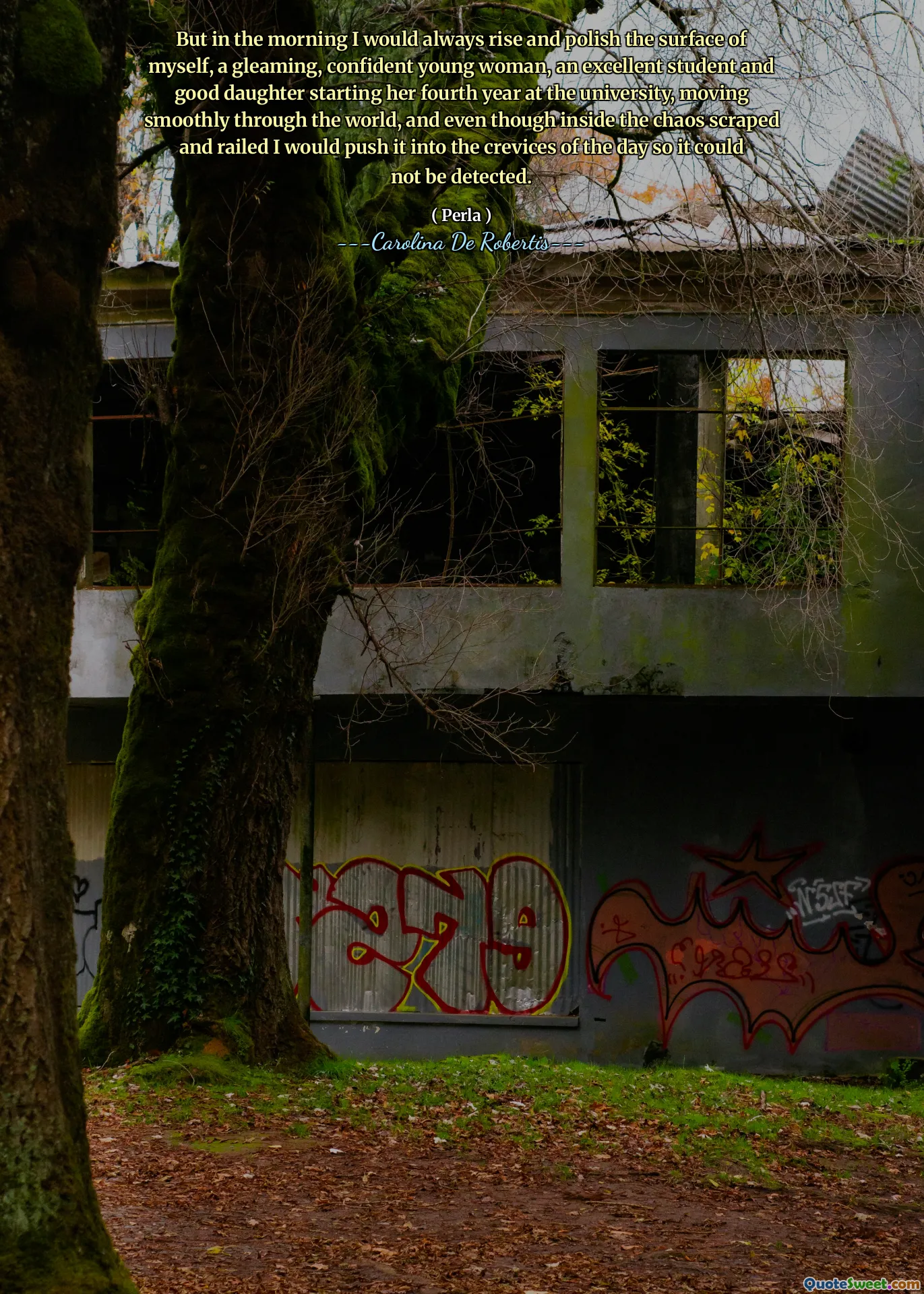
But in the morning I would always rise and polish the surface of myself, a gleaming, confident young woman, an excellent student and good daughter starting her fourth year at the university, moving smoothly through the world, and even though inside the chaos scraped and railed I would push it into the crevices of the day so it could not be detected.
This quote beautifully captures the dichotomy between external appearance and internal reality. The protagonist portrays a disciplined routine of surface maintenance, symbolized by polishing herself to appear confident, composed, and successful. Her depiction of herself as an 'excellent student' and a 'good daughter' reflects societal expectations and the desire to meet external standards of success and propriety. However, the mention of internal chaos—being scraped and railed—reveals a profound difference between how she appears outwardly and how she feels inside. This internal struggle highlights the common human experience of masking vulnerability, insecurity, or turmoil to maintain a composed exterior, especially in environments like university or societal roles. The act of pushing chaos into the crevices of the day, rather than confronting or resolving it, suggests a coping mechanism—suppressing feelings rather than addressing them. This reflective portrayal invites us to consider how people often juggle their internal struggles while projecting strength and control outwardly. It also raises questions about authenticity, self-awareness, and the emotional toll of maintaining such facades. Overall, the quote resonates with an understanding that appearances can be strategically managed, but inner truths often require acknowledgment and acceptance for genuine well-being.



